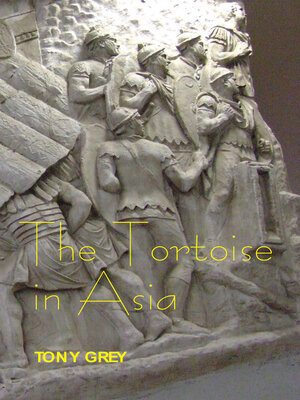
Sign up to save your library
With an OverDrive account, you can save your favorite libraries for at-a-glance information about availability. Find out more about OverDrive accounts.
Find this title in Libby, the library reading app by OverDrive.



Search for a digital library with this title
Title found at these libraries:
| Library Name | Distance |
|---|---|
| Loading... |
An intellectually thrilling novel of a Roman commander who fights alongside the Huns—and finds his mind opened to the culture and beliefs of the East.
Based on a popular legend in Gansu, the far western province of China, The Tortoise in Asia recounts the exploits of Marcus, a young Roman centurion schooled in the Greek classics who, after a devastating loss in a battle with the Parthians, is taken prisoner, marched along the Silk Road, and pressed into service as a border guard on the eastern frontier. After a daring escape, Marcus has many adventures working with the Hun army as a mercenary. Throughout this harrowing journey, Marcus learns about Chinese philosophies, uncovering the startling similarities between these philosophies and those of Greece.
"Tony Grey's book shows us that the Silk Roads are an endless and magical resource in which fact and fiction merge and the imagination revels." —Edmund Capon
Based on a popular legend in Gansu, the far western province of China, The Tortoise in Asia recounts the exploits of Marcus, a young Roman centurion schooled in the Greek classics who, after a devastating loss in a battle with the Parthians, is taken prisoner, marched along the Silk Road, and pressed into service as a border guard on the eastern frontier. After a daring escape, Marcus has many adventures working with the Hun army as a mercenary. Throughout this harrowing journey, Marcus learns about Chinese philosophies, uncovering the startling similarities between these philosophies and those of Greece.
"Tony Grey's book shows us that the Silk Roads are an endless and magical resource in which fact and fiction merge and the imagination revels." —Edmund Capon







